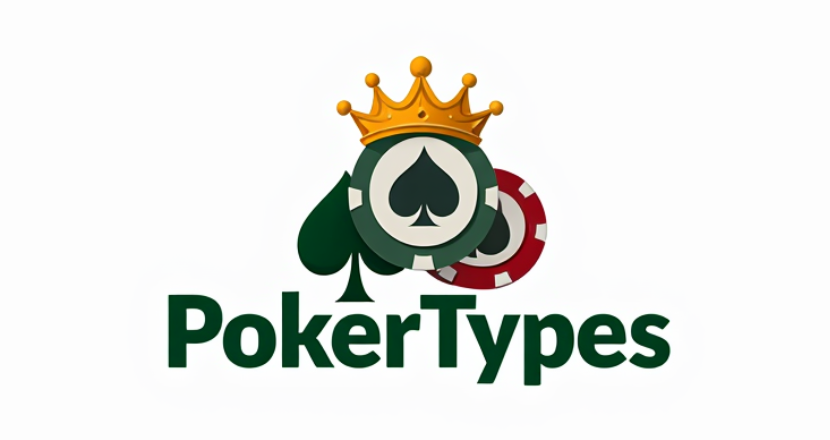Dungeons & Dragons (DnD) gambling games add an exciting layer of entertainment to any tabletop campaign, offering players a chance to take a break from monster-slaying and dungeon-crawling.
These tavern games serve as more than just simple diversions – they’re powerful tools for character development and role-playing immersion.
Whether you’re visiting the local tavern in Waterdeep or taking a breather at a port city inn, these games provide natural opportunities for characters to interact, show their personalities, and maybe win (or lose) some gold pieces.
The world of DnD gambling includes popular games like Three Dragon Ante, Twenty-One, and Liar’s Dice, each offering unique mechanics that blend chance and strategy.
According to experienced Dungeon Masters, about 80% of campaigns eventually feature some form of tavern gaming, making these activities a nearly universal aspect of the DnD experience.
These games typically involve simple mechanics using familiar tools like d20s, d6s, and other polyhedral dice, making them easy to implement without disrupting the main storyline.
Beyond just entertainment, D&D gambling games create opportunities for rich character development – perhaps your Halfling Rogue has a weakness for high-stakes games, or your Dwarven Cleric refuses to bet more than 5 gold pieces at a time.
These activities can lead to interesting plot hooks, side quests, or even major story developments, all while keeping players engaged in the fantasy world through relatable and exciting gameplay.
Popular DnD Gambling Games
When adventurers take a break from slaying dragons and exploring dungeons, they often find themselves gathered around tavern tables engaging in various games of chance.
These D&D gambling games add depth and excitement to any campaign while providing opportunities for memorable role-playing moments.
Classic Dice Games
Hand of Fate
Hand of Fate stands as a sophisticated gambling experience requiring a 50 gold piece buy-in. Players engage in poker-style gameplay using d12 dice, making strategic decisions through multiple betting rounds while managing both hidden and community dice
Twenty-One
Twenty-One mirrors traditional blackjack but uses 2d10 dice instead of cards. With a 25 gold piece buy-in, players aim to reach 21 without going over. The number 1 can count as either 1 or 11, adding strategic depth. Winners receive a 3:2 payout, though all players lose if the dealer scores 21.
Liar’s Dice
Liar’s Dice represents the ultimate bluffing game with a 10 gold piece buy-in. Each player rolls five d6 dice in secret, then takes turns making increasingly bold claims about the total number of dice showing specific values.
Quick Games
Tymora’s Spinner
Tymora’s Spinner offers straightforward gambling where players bet on a single d20 roll. Players can either guess the exact number for triple payout or choose odd/even for a 1.5 times return.
Gyp
Gyp provides an accessible entry point with just a 5 gold piece buy-in. Players roll 2d6 seeking a 7 or 12, with the option to double down by adding another die. Winners receive a 3:2 payout.
Complex Games
Gambit of Ord
Gambit of Ord features a sophisticated betting structure using multiple dice types. Players begin with 1d8, followed by 1d6 and 1d4 rolls, with betting rounds between each. The 50 gold piece buy-in game rewards strategic betting.
Run of Luck
Run of Luck introduces lizard racing where players bet on outcomes determined by multiple d4 rolls. This adds a unique twist to traditional gambling games while maintaining simple mechanics.
Three Dragon Ante
Three Dragon Ante functions as a dedicated card game designed specifically for the D&D universe by Wizards of the Coast. While technically separate from traditional tavern games, many gaming groups incorporate it into their campaigns for its thematic elements
Each game offers unique opportunities for character development and role-playing, whether your party includes a calculating wizard or a risk-taking rogue. The house edge in these games remains carefully balanced to ensure fair play while maintaining excitement.
Additional Tavern Games for DnD
Beyond the popular gambling games, D&D taverns offer several entertaining alternatives that keep adventurers engaged during their downtime. These additional games provide unique opportunities for both casual fun and strategic thinking.
Dice-Based Variations
Dicejack presents an exciting twist on traditional games, using three d6 dice to reach a target of 12. Players must carefully weigh their options, as rolling additional dice could lead to going over the target number. The game typically involves a 10 gold piece buy-in, with winners receiving double their wager.
Baker’s Dozen follows similar mechanics to Dicejack but aims for a total of 13. This slight adjustment creates different probability calculations, making it popular among wizards and other mathematically-inclined characters. The standard wager remains 5 gold pieces, offering 2:1 payouts on winning hands.
Strategic Games
Ships & Fleets introduces maritime-themed gambling to inland taverns. Players roll combinations of dice to create “ships” (pairs) and “fleets” (three of a kind). A typical game uses 3d6 dice, with special rules for natural fleets – rolling three of the same number on the first try. The buy-in usually stands at 15 gold pieces.
Social Contests
Drinking competitions move beyond simple dice rolling to incorporate character abilities and role-playing elements. Participants make Constitution saving throws with increasing difficulty as the rounds progress.
The Dungeon Master might apply advantage to dwarven characters or disadvantage to those with low constitution scores. Stakes often include more than just gold, with information, favors, or local reputation on the line.
These tavern games add depth to the social aspects of D&D campaigns while providing entertaining diversions from standard combat and exploration.
Whether testing luck with Dicejack or proving fortitude in a drinking contest, these activities create memorable moments for both characters and players alike.
Integrating Gambling Games Into Your Campaign
Integrating gambling into your D&D campaign creates rich opportunities for character development and storytelling beyond simple dice rolls. The tavern gaming table often reveals more about characters than the battlefield ever could.
Character Development
A character’s approach to gambling can reflect their deeper nature. Perhaps your halfling rogue has an uncanny knack for Liar’s Dice due to their deceptive nature, while your dwarven cleric refuses to bet more than 5 gold pieces due to a religious vow.
These gaming preferences add depth to character backstories and create memorable role-playing moments.
Story Integration
Gambling serves as an excellent plot device for advancing your campaign narrative. A mysterious stranger might challenge players to a high-stakes game of Three Dragon Ante while holding vital quest information.
The outcome of a Twenty-One match could determine who receives a coveted magic item or learns about a secret dungeon entrance.
NPC Interactions
The gambling table introduces colorful characters to your campaign. Consider adding:
- A skilled dealer with ties to the local thieves guild
- A noble who lost their family fortune to gambling
- A retired adventurer who now runs underground gaming operations
These NPCs can become recurring characters, offering side quests or serving as valuable allies or antagonists. For example, a cheating merchant caught using loaded dice might seek revenge on the party, creating an engaging subplot.
Mechanical Integration
Xanathar’s Guide to Everything provides optional rules for gambling activities during downtime. Players can use various skills like Sleight of Hand for cheating or Insight for reading opponents.
The guide suggests using 3d10 plus proficiency bonus for determining success in gambling ventures, while setting appropriate DCs based on the opponent’s skill level.
Remember to keep gambling rewards balanced – they should never overshadow the main adventure’s potential gains. This helps maintain campaign momentum while still offering entertaining diversions for your players.
Read More: Famous Gamblers: Triumphs, Tragedies, and Lessons from High-Stakes Lives
Tips for Dungeon Masters
Managing gambling elements in your D&D campaign requires careful balance to maintain both fun and fairness. Here are essential tips for Dungeon Masters to create engaging tavern gaming experiences.
Maintaining Game Balance
Keep gambling as a flavor element rather than the main focus. Use Xanathar’s Guide suggestions of 3d10 plus proficiency bonus for basic gambling checks. For higher-level parties, remember that after level 3, standard gambling becomes less meaningful due to increased character wealth.
Stakes Management
Adjust betting amounts based on party level and local economy. A good rule is to limit maximum bets to half of what a typical quest might reward. Consider these skill checks for different games:
- Dice Games: Charisma-based checks
- Card Games: Wisdom-based checks
- Strategy Games: Intelligence-based checks
Fair Play Systems
Implement clear mechanics for both honest play and cheating attempts:
- Use Sleight of Hand versus passive Perception for cheating attempts
- Deception versus Insight for bluffing
- Allow proficiency bonus additions for characters with relevant gaming set proficiencies
Additional Considerations
Create consequences for excessive gambling through random events or plot complications. The Xanathar’s Guide provides tables for potential outcomes that maintain interest without derailing the main storyline. Remember that game balance means player choices should meaningfully affect outcomes while maintaining campaign integrity.
For extended gambling sessions, consider using a simplified system where players make single rolls rather than playing out entire games. This keeps the pace moving while still providing excitement and stakes.
Conclusion
Dungeons & Dragons DnD Gambling games add more than just entertainment to your tabletop experience.
Recent studies from University College Cork demonstrate that these activities contribute to positive mental health outcomes through escapism, creative expression, and social support.
The combination of strategic thinking and role-playing in games like Twenty-One and Liar’s Dice helps players develop problem-solving skills while fostering meaningful social connections.
Research shows that D&D players often demonstrate improved academic performance, with one group of ninth-grade players significantly outperforming their peers on standardized tests.
These tavern games serve multiple purposes: they provide natural breaks between adventures, create opportunities for character development, and strengthen party dynamics.
Whether betting gold pieces in Hand of Fate or participating in a tavern’s drinking competition, each gaming session builds the collaborative storytelling experience that makes D&D unique.
For Dungeon Masters and players alike, incorporating gambling mini-games enriches campaigns while supporting mental wellness through structured social interaction and creative outlets.
The key lies in balancing these activities with main quest objectives to maintain campaign momentum while maximizing enjoyment.

